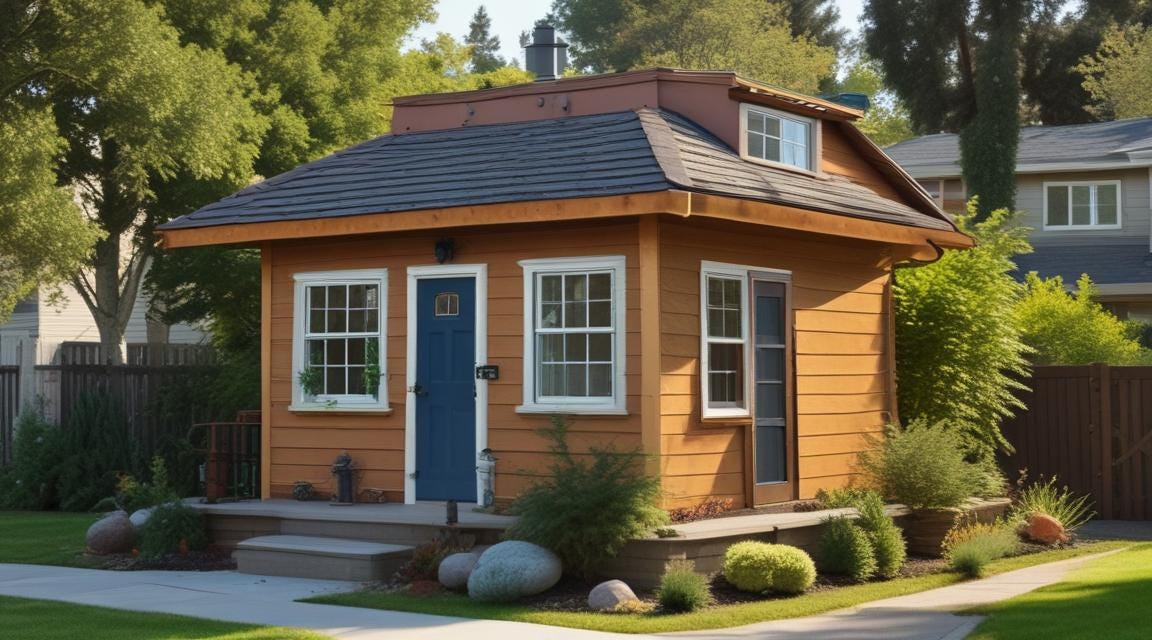Mandatory Massachusetts Home Inspections?
Local Option Real Estate Transfer Tax Likely Dead | ADUs By Right Coming to a Neighborhood Near You | Boston's Impending Economic Doom
Waiving Your Home Inspection? Not So Fast.
Massachusetts state senators unanimously adopted Millbury Senator Michael Moore's amendment to a state housing bill prohibiting "most offers" conditioned on the home buyer waiving or limiting their right to a home inspection.
NBC10 Boston reported on June 28, 2024, that the late-night amendment passed unanimously. Senator Moore’s office confirmed it was a 39-0 vote. The state housing bill would authorize $5.4 billion in borrowing to spur housing production.
The amendment's language directs the Executive Office of Housing and Livable Communities to promulgate regulations stating that offers to purchase a home cannot be conditioned on the home buyer waiving their right to an inspection.
Anyone active in residential real estate knows the alarming number of prospective home buyers making offers that waive the home inspection contingency. Busy buyer agents estimate that 60 percent to 70 percent of home buyers in Greater Boston waive the home inspection contingency. Southern New Hampshire is similar.
There are two sides to the debate over prohibiting the waiver of home inspections. Some argue it is an inappropriate government intrusion into a private agreement. Others believe the prohibition is necessary for consumer protection. The state Senate and House of Representatives will hash out their differences before a final housing bill is sent to Governor Healy to consider signing. The House's housing bill passed about one month ago. It did not include a prohibition against waiving home inspections.
Local Option Real Estate Transfer Tax Likely Dead
The Massachusetts Senate effectively killed any chance municipalities could tax the sale of homes.
The Senate's $5.4 million housing bill did not include language to authorize local option real estate transfer taxes. More than a dozen municipalities sought to tax million-dollar-plus property sales to raise local revenue for affordable housing. The House did not adopt the local option for transfer taxes either in its housing bill, meaning the tax is likely dead for this session.
Governor Maura Healey's version of the housing bond bill would have allowed municipalities to impose a 0.5 to 2 percent tax on property sales over $1 million or sales above the county's median home sales price in communities where the median price exceeds $1 million. Boston Mayor Michelle Wu advocated taxing sales of $2 million or more.
Greg Vasil, CEO of the Greater Boston Real Estate Board, told the Boston Globe he was "thrilled" that the Senate bill rejected "flawed policies" such as the transfer fee.
ADUs By Right Coming to a Neighborhood Near You
Accessory Dwelling Units, commonly referred to as ADUs, will likely be allowed to be built by right in all neighborhoods zoned for single-family development across Massachusetts.
The state Senate and House of Representatives included ADU language in their housing bills. Governor Healey also pushed for ADUs by right. State officials estimate the policy could create more than 8,000 ADUs in five years.
Proponents of ADUs argue that these small units, attached to or separate from single-family homes, are a tool to increase housing. Opponents argue such units will adversely change the complexion of residential neighborhoods.
Boston's Impending Economic Doom
WBZ political analyst Jon Keller penned a comprehensive article for the June 2024 issue of Boston magazine about how the decline in commercial real estate values will result in severe financial trouble for Boston.
The pandemic threw the commercial real estate industry a curveball, popularizing working from home and hybrid work schedules. They're here to stay in one form or another, and the dearth of employees commuting into Boston has diminished the need for office space.
Keller cites, among other sources, Tufts University's nonpartisan Boston Policy Institute and the Center for State Policy Analysis (CSPA), which released a report in February sounding the alarm about a sharp decline in commercial activity. The report illuminated several issues resulting from Boston's floundering office space market, including the following:
More than one-third of Boston's tax revenue comes from commercial property taxes, the highest proportion among major U.S. cities.
The high concentration of revenue from commercial property taxes leaves Boston especially vulnerable to falling real estate values. With the value of office space expected to decline 20 percent to 30 percent by 2029 and overall commercial real estate prices by 12–18 percent, CSPA estimates that Boston will face a cumulative revenue shortfall of $1.2 billion to $1.5 billion over the next five years.
Falling revenue is not a short-term challenge but the arrival of a new normal, where annual tax collections in 2029 and beyond will be roughly $500 million below the current trend.
Boston will have only a few ways to make up for the lost tax revenue. Massachusetts precludes cities from introducing local sales and income taxes. Fully offsetting the decline in commercial real estate would require a 25-percent to 30-percent increase in residential property taxes.
Mayor Wu asked the state legislature to pass a home-rule petition allowing Boston to sharply increase its commercial property tax rate. The proposal is getting little support outside Boston City Hall. Boston Contrarian reported on July 2, 2024, that Wu's commercial property tax proposal "could be nearing the end of the road now that its fate has been placed in the hands of a mostly skeptical Beacon Hill."
Another potential solution is converting office space to residential units. It's complex and costly. The lack of incentives and affordable housing requirements has kept potential developers on the sidelines.
The business community and state and city governments also discussed investing more in the city's biotech industry, where most jobs require workers to come into the office or lab. Attracting tourism with significant events is another area where the city could generate additional revenue.
Some outside-the-box ideas include less expensively transforming high-rise buildings into "semi-communal living" for college students, freeing up needed apartments around Boston. Another idea suggested hospitals could subsidize housing for healthcare workers in office buildings, "consolidating their shifts so they can split their time between the city and their homes."
Thank you for reading Real Boston
We’re excited to be back. If you’re not subscribed already, please subscribe.
Please have a safe and enjoyable 4th of July.







